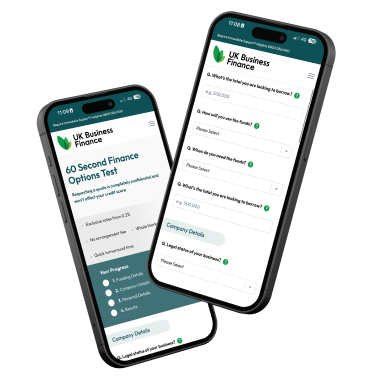Spot Factoring and Selective Invoice Discounting
Release value from selected unpaid invoices
If you want to raise finance against a single invoice to give your business a quick cash flow injection, spot factoring and selective invoice discounting are two funding methods to explore. They enable you to receive early payment for an outstanding invoice to fuel growth and cover your business’s costs.
At UK Business Finance, we offer spot factoring and selective invoice discounting facilities across the whole market. Just tell us your business’s requirements and we’ll bring you the best quotes. There’s no fee for our service and we even fill out the finance applications on your behalf so you can focus on running your business.
What is single invoice financing?
Single invoice financing allows you to effectively sell a single outstanding invoice to a finance provider. They then pay you a cash advance based on a percentage of the invoice’s value - generally around 80% to 90% of the total amount. You’ll receive the remainder of the invoice when your client makes the payment, minus the provider’s fee.
Spot factoring and selective invoice discounting are different forms of single invoice financing. Although they’re both similar, there’s a small but important difference in how they work.
- Spot factoring - In this type of agreement, you select the invoice you want to raise funding against and the finance provider pays you a cash advance. When the invoice is due, the finance provider will collect the payment from your client on your behalf and pay the remainder to you, minus the agreed fees.
Spot factoring costs a little more in fees as the finance provider handles the credit control on your behalf. However, it could be a worthwhile expense if you don’t have a robust credit control process or want to spend time chasing customer payments.
- Selective invoice discounting - Just as with a spot factoring agreement, you cherry-pick the invoices you want to raise finance against and receive a cash advance from the finance provider. The key difference is that you retain responsibility for credit control and collecting the invoice payment from the client.
Selective invoice discounting is better suited to your business if you have a good credit control process in place. You can also continue to communicate with your customers as normal without any involvement from the finance provider.
What are the benefits of single invoice finance?
- You can get quick access to funding, with cash advances usually paid within 24 hours of an invoice being verified by the finance provider.
- You can use single invoice financing alongside other funding types such as loans or long-term credit facilities.
- You’re not tied into a long-term funding facility or contract and can choose to raise finance whenever you need it.
- Funding decisions are based on your customer’s creditworthiness rather than your own, which is great if you run a new business or have an adverse credit history.
- There’s no security required other than the invoice itself.
- It can be a very effective way to maintain healthy cash flow for businesses with growing pains or seasonal fluctuations.
There are also a couple of things to look out for. Single invoice finance is typically more expensive than a whole-ledger agreement. In the case of spot factoring, the finance provider may also have a different approach when chasing a payment, which could potentially harm your relationships with your clients.
Is my business eligible for single invoice finance?
If you run a UK business and issue invoices to other businesses on payment terms of 30 days or more, there’s a good chance you will be eligible for single invoice finance.
Due to the nature of the product, a large part of the provider’s decision will depend on the strength of the particular invoice you want to finance. If your customer is creditworthy and has a track record of making payments on time, you shouldn’t have a problem.
Get single invoice financing quotes
At UK Business Finance, we search the whole market to bring you the best spot factoring and invoice discounting quotes. Use our tool to request a quote or get in touch for fee-free assistance.
Further Reading
Top Finance Tips
We work across a wide range of sectors throughout the UK, providing specialist advice to each sector.

How to financially prepare for investor exits
Whether your business is at an early stage or it’s more established, the financial boost provided by external investment, such as from private equity firms, angel investors, and venture capitalists, is invaluable.

How to finance a MBO
If you’re considering conducting a management buyout (MBO), there are various means by which you can fund it. Financing commonly involves a level of personal funding by individual members of the management team combined with additional external borrowing, such as bank loans and asset financing.

What lenders look for in a business loan application
Knowing what lenders look for in a business loan application helps you present your business in the best light – an important consideration, as being rejected for a loan damages your company’s credit rating and makes it difficult to borrow in the future.

What is a commercial finance broker?
A commercial finance broker is a professional intermediary who helps business owners to source the best lenders and deals. They provide a vital service that eases access to funding and ensures businesses obtain the most appropriate finance for their needs.




